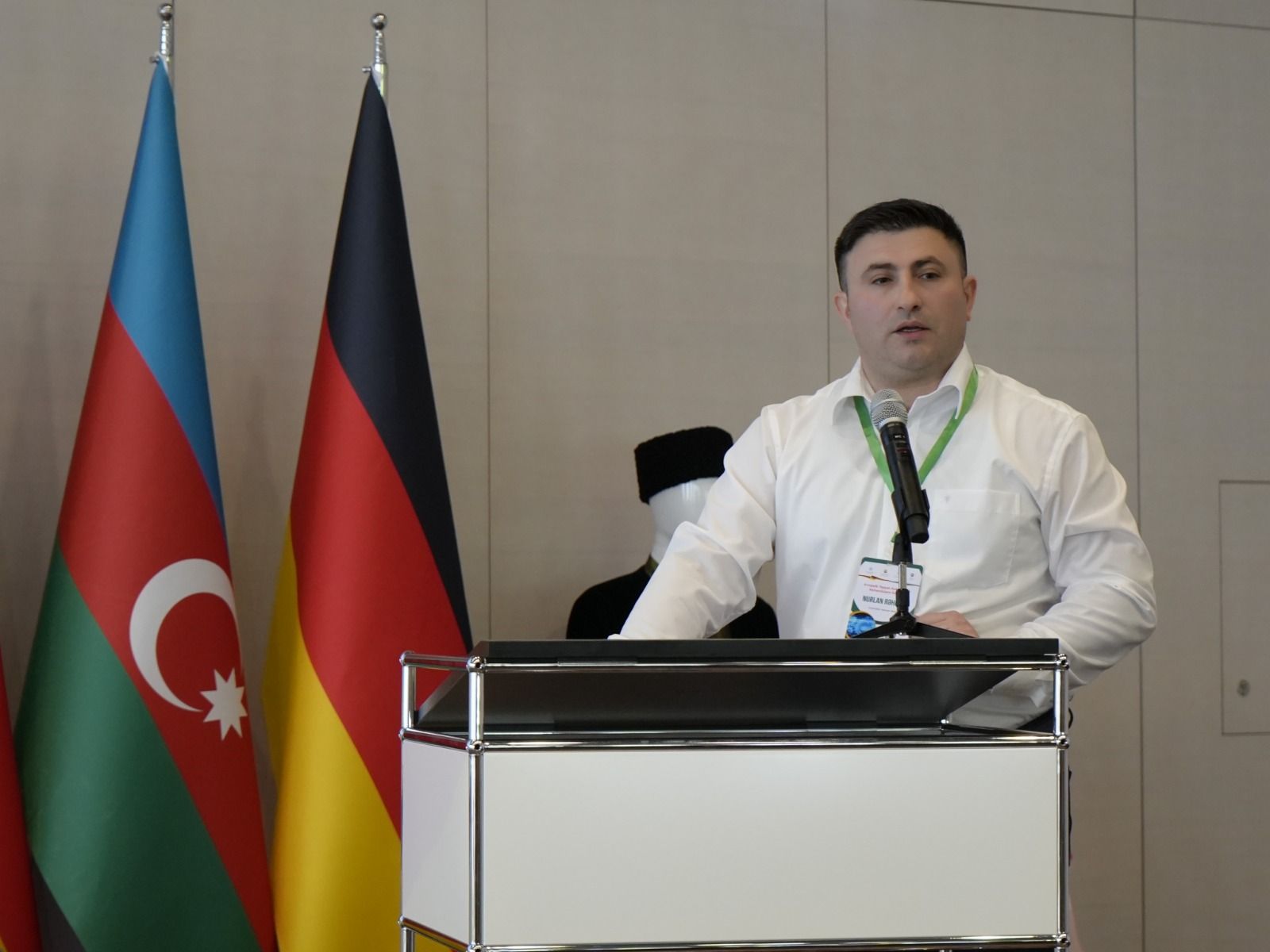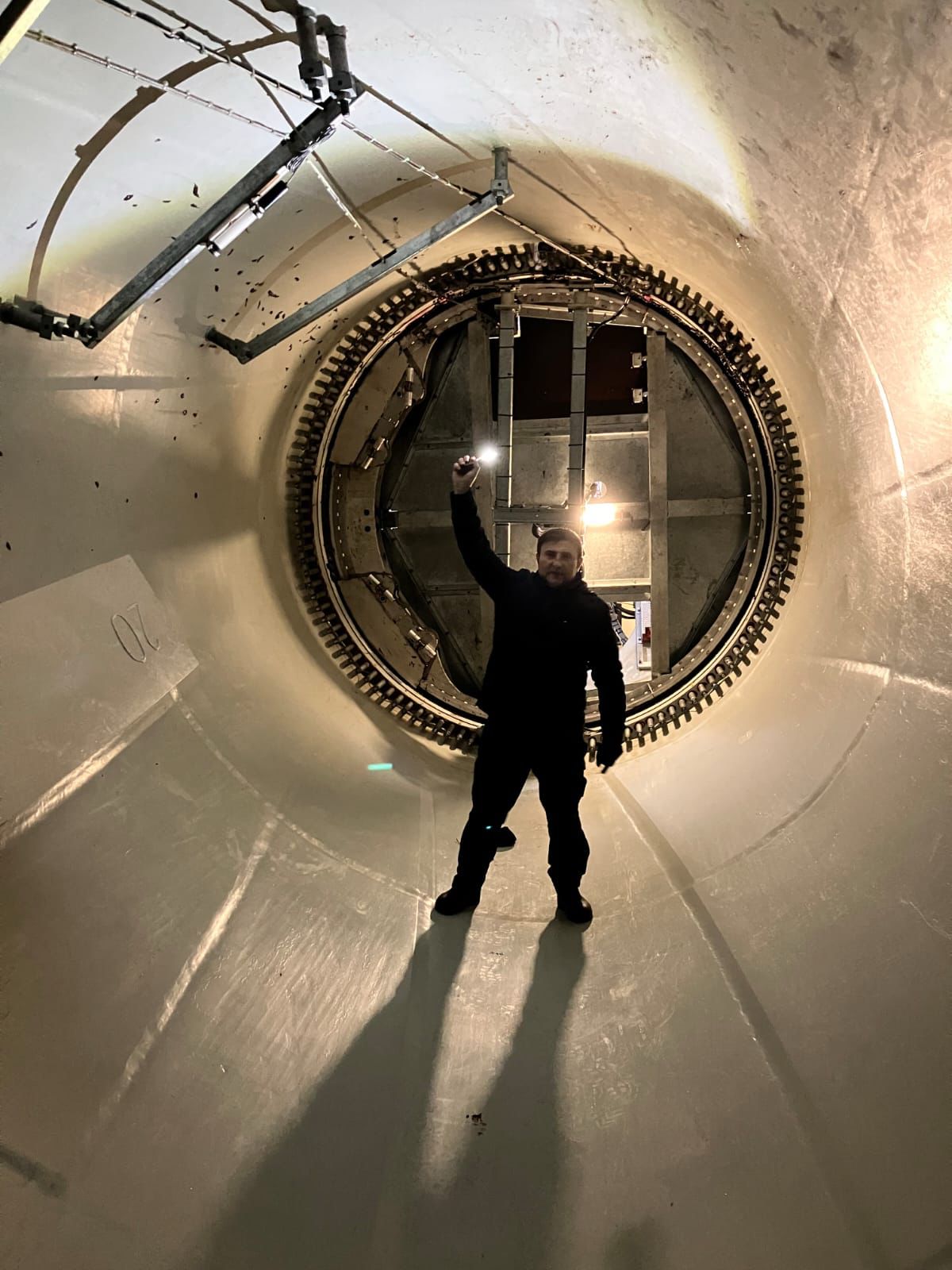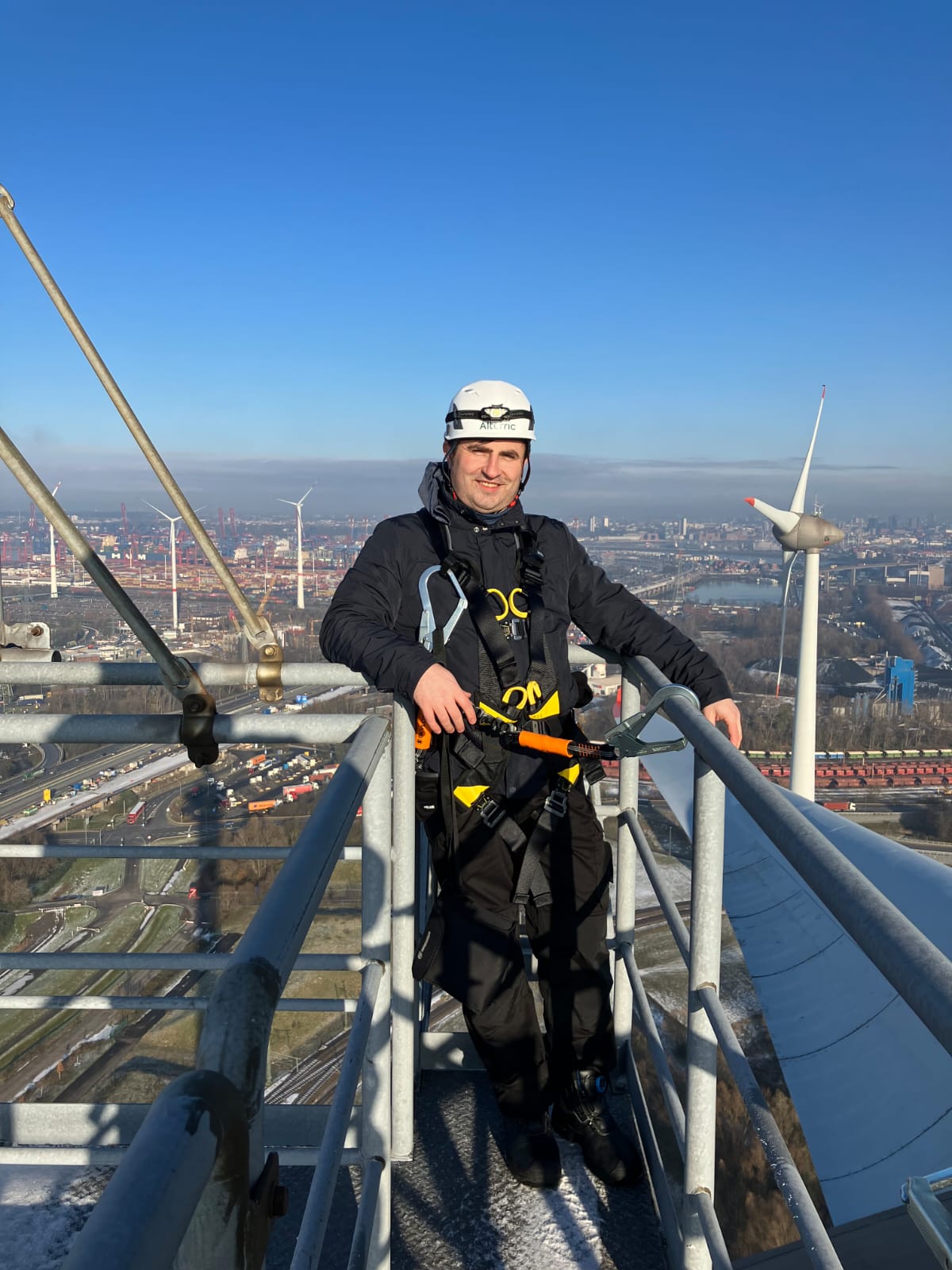Trend News Agency presents an interview with Nurlan Rahimli, an Azerbaijani living in Germany who works as a Technical Manager for operational wind farms at Alterric Deutschland GmbH and as a Project Manager at AGA Renewable Energy Solutions.
Mr. Rahimli, could you tell us about your educational background? How did your journey toward becoming an engineer begin?
Even though I’m an engineer today, my academic journey initially started in economics at the Oil Academy. Back then, career choices were often influenced by family expectations, and economics was seen as a stable and promising field. However, my true interest has always been in the energy sector-especially renewable energy.
At some point, I realized that I wanted a career that was not just financially viable but also intellectually fulfilling and future-oriented. That’s when I made the decision to switch to engineering, focusing on energy technologies.
What led you to continue your education in Germany? Was it difficult to learn the German language?
Germany’s reputation in engineering and its leadership in renewable energy made it an obvious choice. However, my application for a scholarship to pursue a second bachelor's degree was not accepted, which meant I had to explore alternative paths. I decided to complete my mandatory military service first.
I had already started learning german language before my military service, but after a long break, I had to essentially relearn it from scratch. Learning German is challenging-it’s not a language that follows a simple set of rules; rather, it feels like a language of exceptions. But I was determined to study in Germany, so I pushed through.
Ultimately, I opted for a more practical and financially sustainable path: enrolling in an English-taught master’s program in Germany, which allowed me to enter the field while continuing to refine my German language skills.
How did your interest in renewable energy first begin? And what made you focus specifically on wind energy later on?
My interest in energy started early on. It was a developing field at the time, and that made it even more exciting. Baku, known as the "City of Winds," naturally made wind energy an area of curiosity for me.
Over time, it became clear that fossil fuels wouldn’t last forever, and the world would have to shift toward renewables. The Azerbaijani government had already started discussing green energy initiatives around 2009, which further strengthened my belief that this sector had real potential back home.
Among different renewable energy sources, wind energy stood out because of its rapid advancements and scalability. I saw it as an area where I could build expertise and contribute meaningfully in the long run.

If we're not mistaken, you also started working while pursuing your master’s degree. Did combining work and study help you deepen your expertise, or was it a particularly demanding period for you?
Yes, I worked during my studies-initially out of necessity, to cover living and education costs. During my first year, I worked on weekends and non-class days, with some financial support from my family.
Later on, I focused on student jobs that aligned with my field. Balancing work and studies wasn’t easy, but it was worth it. The experience helped me develop practical skills, apply theoretical knowledge in real-world settings, and understand the industry’s expectations. It was a demanding period, but one that shaped me professionally and personally. My mindset at the time was simple: If it doesn’t challenge you, it doesn’t change you.
We noticed that you've studied at three different institutions in Germany. Would you say that in Germany, continuously gaining knowledge is more of a lifestyle?
I would answer this questions of yours in a typical German way: Jein! It means Yes, but also no.
My master’s program was structured as a dual degree, so I was enrolled at both Kassel University in Germany and Cairo University in Egypt, spending a semester in Cairo. That’s why I graduated from both universities.
Later, while working full-time, I enrolled in a part-time bachelor’s program in industrial engineering, attending classes on weekends. However, due to a job change and relocation, I had to put that degree on hold after two years.
As in many other countries, continuous learning is essential in Germany to stay competitive and high valued. Professional development through courses, certifications, and further studies is widely encouraged, and individuals are generally open to lifelong learning.
In general, when analyzing the state of green energy in Germany—especially in the wind sector—we see that the country ranks third globally in wind energy production. But you’ve had a close-up view of the field. What insights can you share about wind energy development in Germany, and what are some of the key steps or innovations being implemented?
Germany has been a global leader in wind energy for decades, thanks to ambitious policies, technological innovation, and strong government incentives. The country was one of the pioneers in large-scale wind deployment, and wind power now plays a crucial role in Germany’s energy transition, known as the Energiewende.
However, in recent years, onshore wind energy has faced challenges. Many prime locations are already occupied, and new installations are increasingly met with regulatory hurdles, public resistance, and lengthy permitting processes. As a result, the growth of onshore wind has slowed, shifting the focus toward optimizing existing turbines through repowering-replacing older, less efficient turbines with modern, high-performance ones. This helps increase energy output without requiring entirely new wind farms.
Meanwhile, offshore wind remains a key area of expansion. The North Sea and Baltic Sea offer some of the best wind resources in Europe, and Germany has ambitious plans to scale up offshore capacity significantly. The challenge, however, lies in efficiently integrating all this renewable energy into the power grid. Wind energy production is inherently variable, and ensuring grid stability requires advanced energy storage solutions, smarter grid management, and better connectivity between different regions.
One exciting development is the increasing role of hydrogen. Excess wind energy, instead of being wasted, can be used to produce green hydrogen through electrolysis. This hydrogen can then be stored and used later for industrial applications, transportation, or even reconverted into electricity when needed.
Germany's wind energy sector is at a turning point—not just about adding more turbines but making the entire system smarter, more resilient, and more integrated with future energy solutions. The focus now is on efficiency, grid expansion, and innovative storage technologies to ensure that wind energy remains a reliable pillar of the country's clean energy future.

Which regions in Germany are best suited for wind farms?
The strongest wind energy potential is in northern Germany, particularly:
- Lower Saxony
- Schleswig-Holstein
- Mecklenburg-Vorpommern
Offshore wind farms along the North Sea and Baltic Sea are also highly productive.
For instance, Schleswig-Holstein frequently generates more electricity from wind than it consumes-sometimes exceeding 100% of its demand. Nationwide, wind energy accounts for roughly 30% of Germany’s total electricity production, and renewables as a whole contribute around 50%.
Germany and Azerbaijan already cooperate in several areas. In your opinion, what benefits could both countries gain from deeper collaboration in the renewable (green) energy sector?
Azerbaijan has significant potential in renewables, and foreign partnerships-especially with Germany-could accelerate its development. Germany brings advanced technology and expertise, while Azerbaijan offers strong wind and solar resources.
With the Azerbaijani government now prioritizing green energy projects, there’s an opportunity for German companies to invest, share knowledge, and support infrastructure development.
Do you think Azerbaijan’s renewable energy potential could be attractive to major companies from Germany that are already well-established in this field?
Absolutely. Azerbaijan’s combination of high solar radiation and strong wind conditions makes it an attractive investment location.
German companies, particularly those specializing in energy technology, have a strategic interest in expanding into emerging markets. With Europe aiming for energy security and diversification, Azerbaijan could become a key partner-not just for traditional energy exports but also for renewables.







